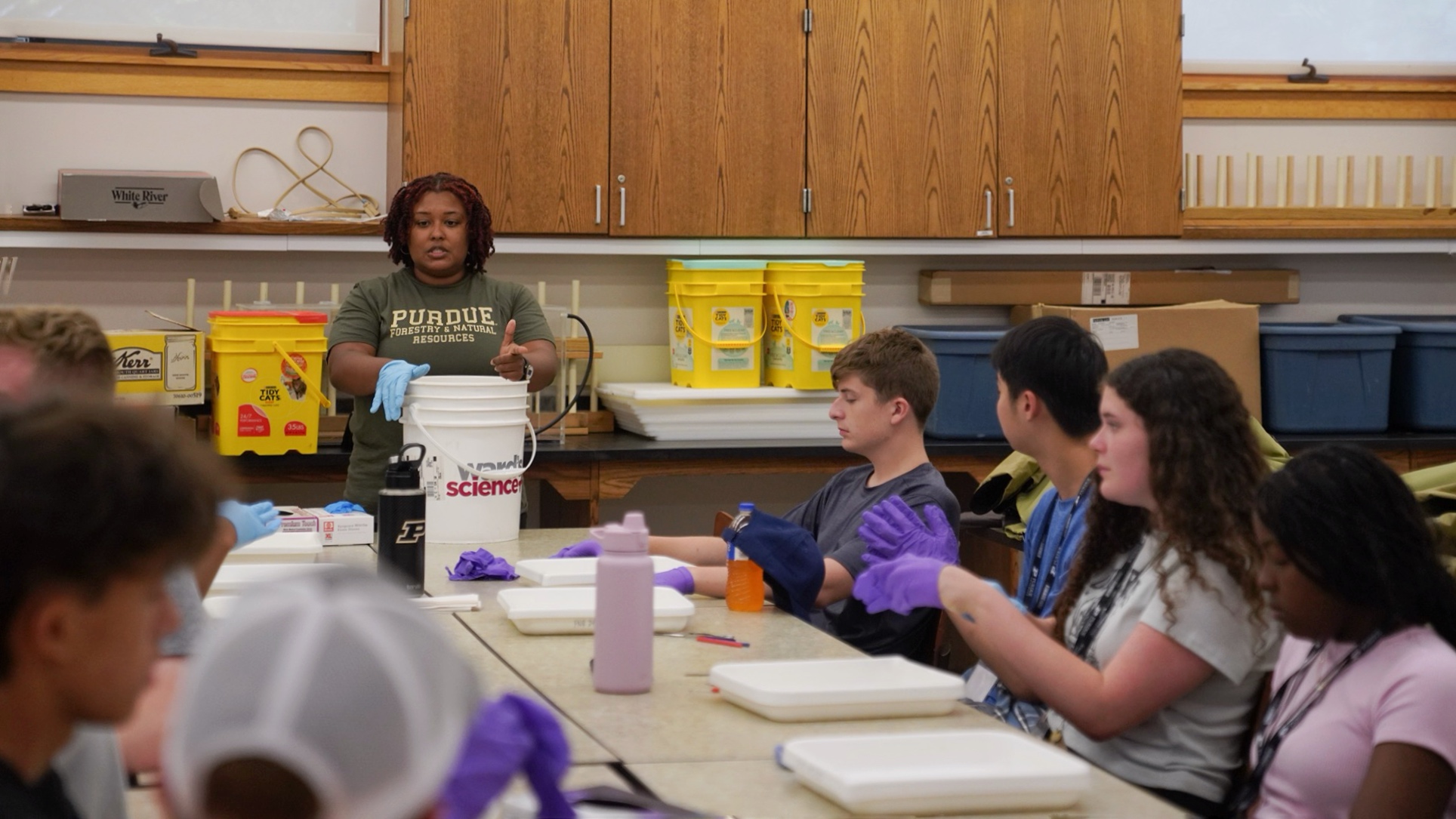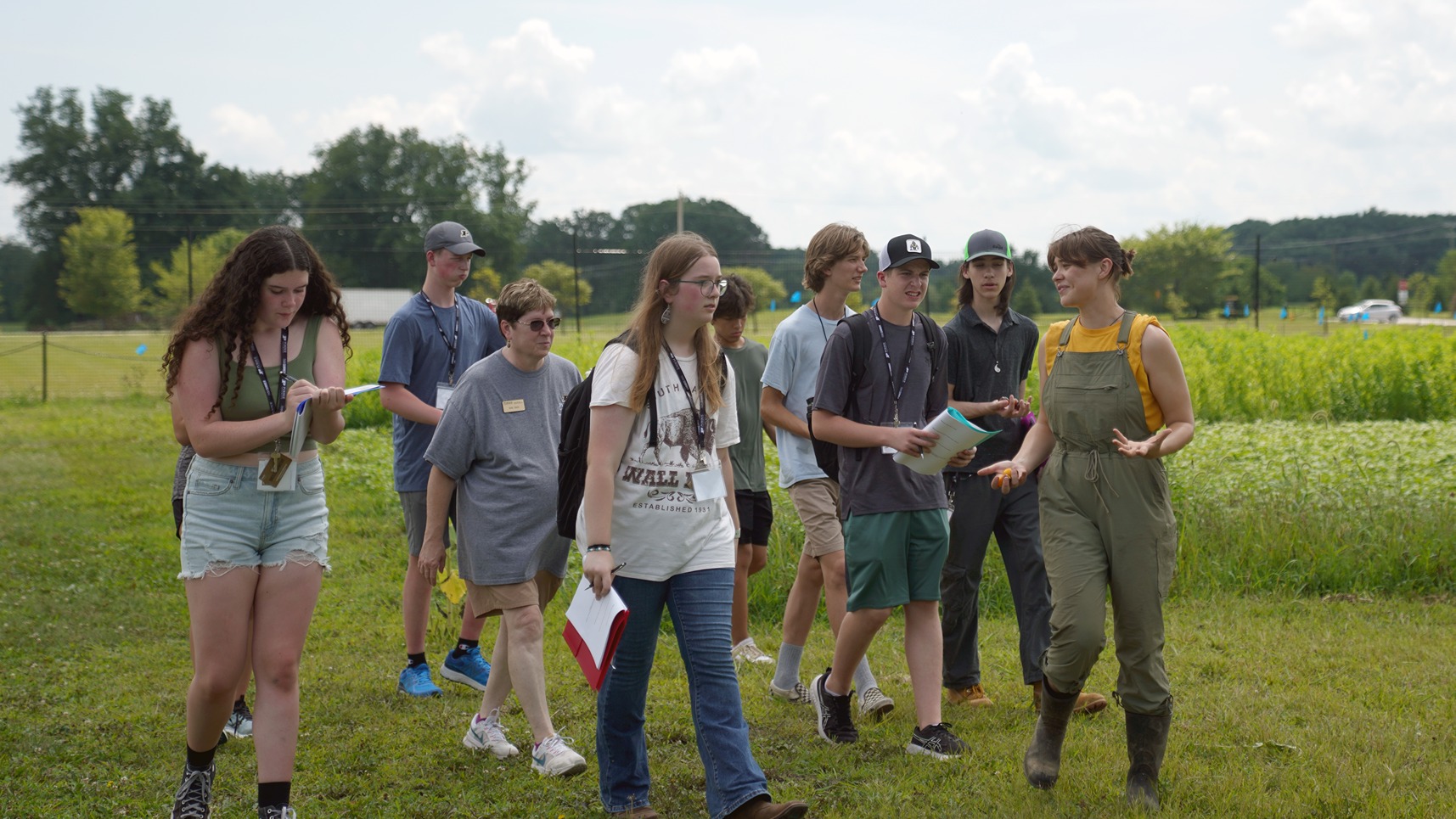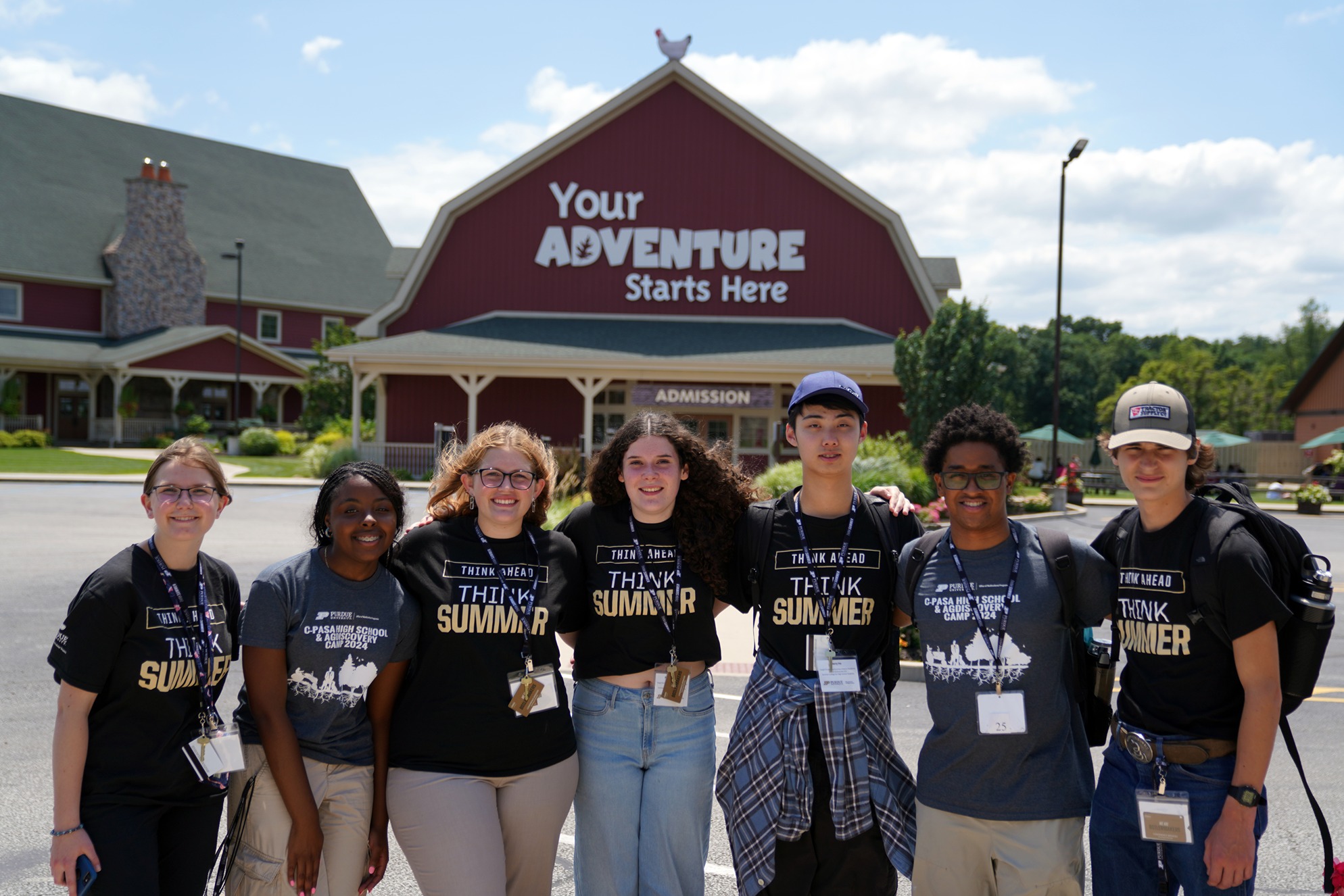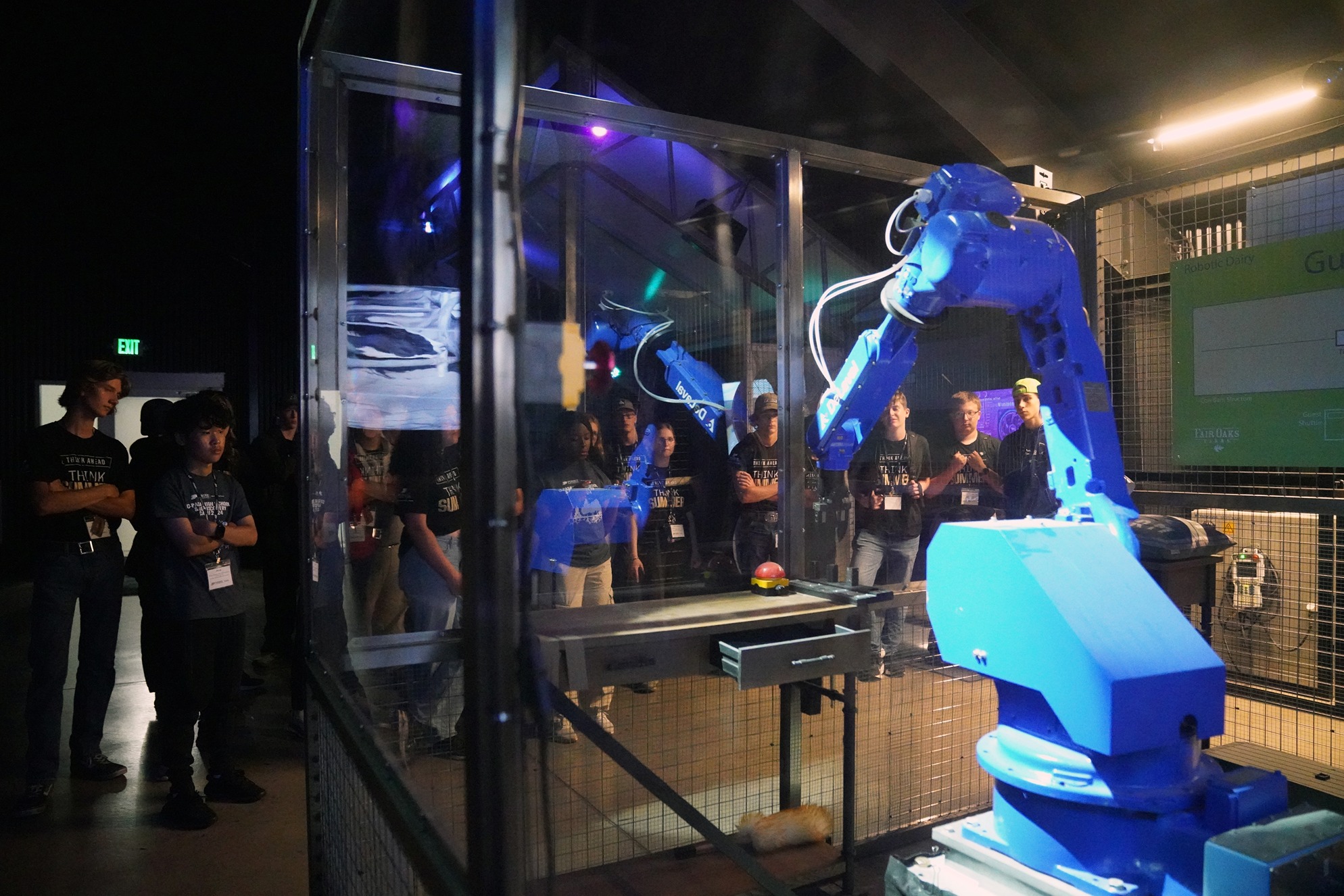Fields of Discovery: Students at summer camp explore agriculture

Four miles west of Purdue University’s main campus, a group of high schoolers are looking for macroinvertebrates in the John S. Wright Forestry Center. The students are spending the day learning about the Department of Forestry and Natural Resources (FNR) as part of the Cargill-Purdue Agribusiness Science Academy (C-PASA), a program where high schoolers spend two weeks on and near Purdue’s campus discovering the various educational experiences that the College of Agriculture offers.
“C-PASA provides high school students with an early opportunity to see if Purdue University is the ‘right fit,’” said Zachary Brown, assistant director for student recruitment and retention in Purdue Agriculture’s Office of Multicultural Programs. “Many students find new, unexpected pathways or reconfirm their commitment to their beloved passions.”
The two tracks offered, Plant and Environmental Sciences and Biological Sciences and Engineering, allow students the opportunity to explore agricultural fields of study. Courses focus on FNR, entomology, agronomy, horticultural and landscape architecture, biochemistry, agricultural and biological engineering, animal sciences and agricultural sciences education and communication.
Lily, a high school student in the program, explained, “I think this program is really important for students in STEM because it opens your eyes to all of the different parts of STEM and agriculture.”
The plant and environmental sciences students met with FNR and Illinois-Indiana Sea Grant’s recruitment and outreach specialist Megan Gunn. Gunn led a fish dissection workshop looking for macroinvertebrates, or aquatic insects, to determine the health of aquatic ecosystems.
“These aquatic insects are indicators of water quality,” Gunn explained. “We're also going to go out and collect water samples. All of these different pieces tell us a different part of the story of how water is healthy.”
Students also spent time with ornithologist and wildlife professor Barny Dunning to observe researchers banding and releasing birds after collecting information to determine the health status of bird populations. Later they learned about the importance of keeping terrestrial ecosystems healthy and the different processes scientists utilize to keep these ecosystems running. One of the more popular FNR activities was climbing trees in Martell Forest.
 Megan Gunn, FNR and Illinois-Indiana Sea Grant’s recruitment and outreach specialist, instructs the C-PASA class at the John S. Wright Forestry Center.
Megan Gunn, FNR and Illinois-Indiana Sea Grant’s recruitment and outreach specialist, instructs the C-PASA class at the John S. Wright Forestry Center. I enjoy working with C-PASA because it allows students to just see something that's outside of their norm. They get to experience things that they may not have ever experienced before.”
- Megan Gunn, FNR and Illinois-Indiana Sea Grant’s recruitment and outreach specialist
Grace, a high school sophomore from Illinois who started an FFA chapter at her high school, arrived already interested in urban gardening. After her C-PASA experience, she is leaving with another educational interest: conservation methods.
“My favorite thing I've learned so far is about the versatility of agriculture,” Grace says. “You don't have to just choose one thing.”
During a visit to the Purdue Student Farm managed by the Department of Horticultural and Landscape Architecture, students learned about crop rotation, observed beehives from a distance, and toured the variety of operations. Jane Pickey, a rising senior studying sustainable food and farming systems, mentored students as they explored the farm.
“I really enjoy sharing what I know, especially with people who are curious,” Pickey said. “It's so fulfilling to both learn something and then to teach it in a way that gets people excited about what they're learning.”
 C-PASA students tour the Purdue Student Farm and taste-tested some of their produce, including different varieties of apples.
C-PASA students tour the Purdue Student Farm and taste-tested some of their produce, including different varieties of apples. Outside of their coursework, students took industry tours of Syngenta and Cargill, Inc. and went on field trips to the Indianapolis Zoo and Fair Oaks Farms. At Fair Oaks in northwest Indiana, they explored milk production, learned how they utilize new technologies in their farming processes, and even interacted with a cowbell-playing robot.
Students also spent time cultivating friendships with their peers. Friendships that, according to Brown, can last long after the two-week program.
“It’s great to see the students having fun with people from different backgrounds,” Brown said. “The majority of the participants will meet for the very first time at the program and will leave with friends that they stay in contact with afterward.”
 Students start their adventure on a field trip to Fair Oaks Farms.
Students start their adventure on a field trip to Fair Oaks Farms.  Students discover how technology and robotics keep operations running smoothly on a farm.
Students discover how technology and robotics keep operations running smoothly on a farm. The C-PASA High School Camp will introduce high school students to the vast world of agricultural research, education and career opportunities again next summer for its 2025 session.






